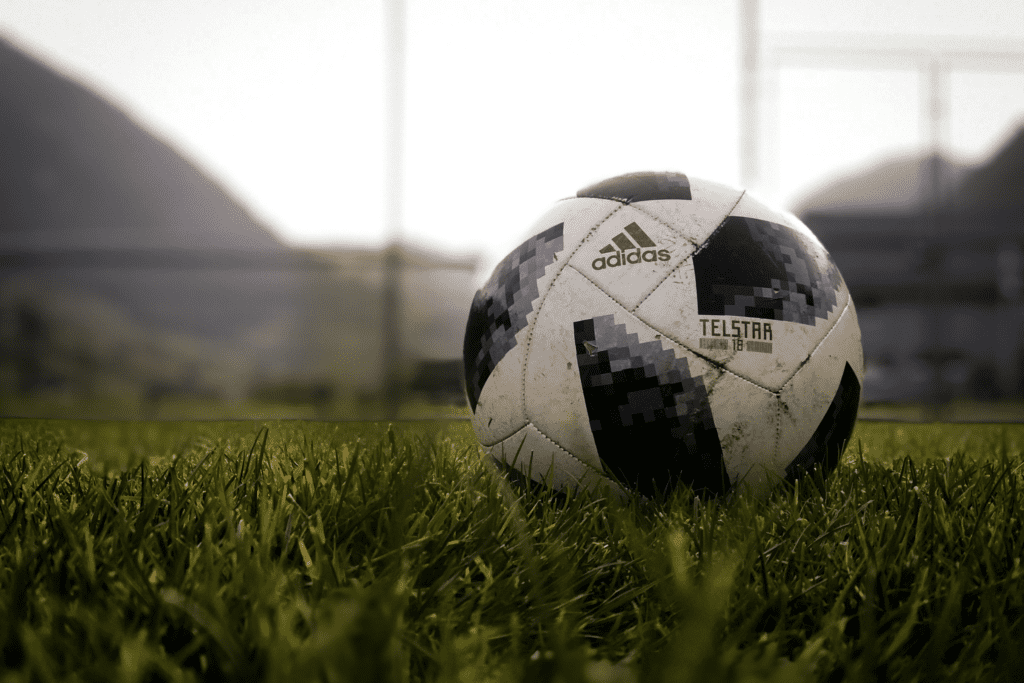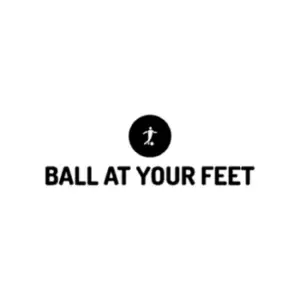Soccer balls are exposed to water all the time during rainy games and training sessions. These conditions are safe for your soccer equipment, but prolonged exposure to water can ruin your soccer ball. Is it okay for your soccer ball to get wet?
Your soccer ball can get wet without suffering damage. It’s okay to use your ball in the rain, but dry it off after you’re done and before you put it away. Water can leak into the crevices of the ball and compromise the inner and outer materials. Store your ball indoors to protect it from harmful weather conditions like strong wind and rain.
Keep reading for more information on the harmful effects of leaving your ball outside and why getting wet now and then is no big deal.
Table of Contents
Can a soccer ball get wet?
Can your soccer ball get wet? The short answer is yes! While soccer balls should not take on excessive water exposure, using them during rainfall or on a damp surface is safe.
Modern soccer balls are designed to withstand outdoor elements and excessive wear and tear. A soccer ball can get wet while playing in the rain or on a wet surface. This water exposure will not affect the ball’s lifespan or quality. Don’t leave your soccer ball outside; properly store your soccer ball indoors.
Excessive exposure to water over time, combined with highly fluctuating weather, will cause the ball to decay. Don’t store your soccer ball outdoors to keep it safe from the elements.
The outer layer of soccer balls is made using polyurethane, a synthetic material safe from water’s adverse effects. This material is used for the best soccer balls on the market. Lower-quality balls typically use polyvinyl chloride (PVC), but this material is harder, making it less ideal for a soccer ball.
The inner lining of a ball is composed of cotton and polyester. The bladder, where the air is stored to inflate the ball, is made of butyl or latex. Soccer ball stitching is made with kevlar or polyester–some soccer balls use thermal heating to glue the outer layers together. Silicone is used for the valves where the pump needle is inserted.
All modern soccer balls are usable in the rain but should not be stored outside. Fickle temperatures and other weather effects like wind can inflict massive wear and tear on a ball; keep your soccer ball indoors, away from harmful weather conditions.
Does water ruin a soccer ball?
Excessive water exposure to a soccer ball’s synthetic material is a no-no. A little rainwater is safe during training or a game, but don’t keep your ball outside for days on end. Does water ruin a soccer ball at the end of the day?
Small quantities of water will not ruin a soccer ball. Using a soccer ball in the rain or on wet surfaces is safe. However, it’s best to store your soccer ball indoors, away from rainwater. Excessive exposure to water causes decay and erosion of the ball. Keeping your ball dry and sheltering it from weather effects increases its lifespan.
Your soccer ball will last a while if stored and cared for properly. Storing your ball indoors will make it last longer.
Likewise, leaving it outside during a rainstorm can cause the material to decay; rain, dirt, and wind will harm your ball over time.

Although water doesn’t ruin your soccer ball, prolonged exposure to the outside elements will decrease its lifespan and negatively affect the ball. Such improper care can lead to a defective ball. Soccer balls left outside can become flat or ruined completely.
Keep your soccer balls indoors even when it’s sunny out. Since most outer shells are made from a type of plastic, soccer balls are susceptible to harmful sun damage.
Can you leave a soccer ball in the rain?
Playing with your soccer ball in the rain during a game or training is one thing, but leaving it outside during a storm is another. So, can you leave a soccer ball outside in the rain? Definitely not.
Do not leave your soccer ball in the rain or outside at all. Store your dry soccer ball indoors to increase its longevity and avoid defects. Soccer balls left in the rain will decay over time, reducing the overall quality of the ball.
You should not leave your soccer ball or other soccer equipment outdoors. Everything in your soccer bag is best kept safe from the outside world, including your ball, shin guards, and soccer cleats.
Proper storage of your equipment makes it last longer. If you leave something outside, the buildup of dirt, mud, rainwater, and debris will eat away at your equipment.
Always store your soccer things indoors. It’s okay to use them in the rain or to get them wet, but make sure you dry them off before you put them away, including your soccer ball.
Can you wash a soccer ball with water?
If your soccer ball has some marks or mud from playing in the rain, you can gently clean the surface to try and remove them. Just use water and a towel!
You can wash off your soccer ball with water. Wet a paper towel or, ideally, a microfiber towel and gently scrub any marks or stains from your ball. Do not use cleaning products on your soccer ball, as these can damage and harm the material.
Water alone is enough to clean off your soccer ball. Over time, your ball will accumulate dirt and slight scratches; these are not harmful and can be rubbed away using water and a towel. Use a microfiber towel if you have one to avoid scratching the outer material of the ball.
